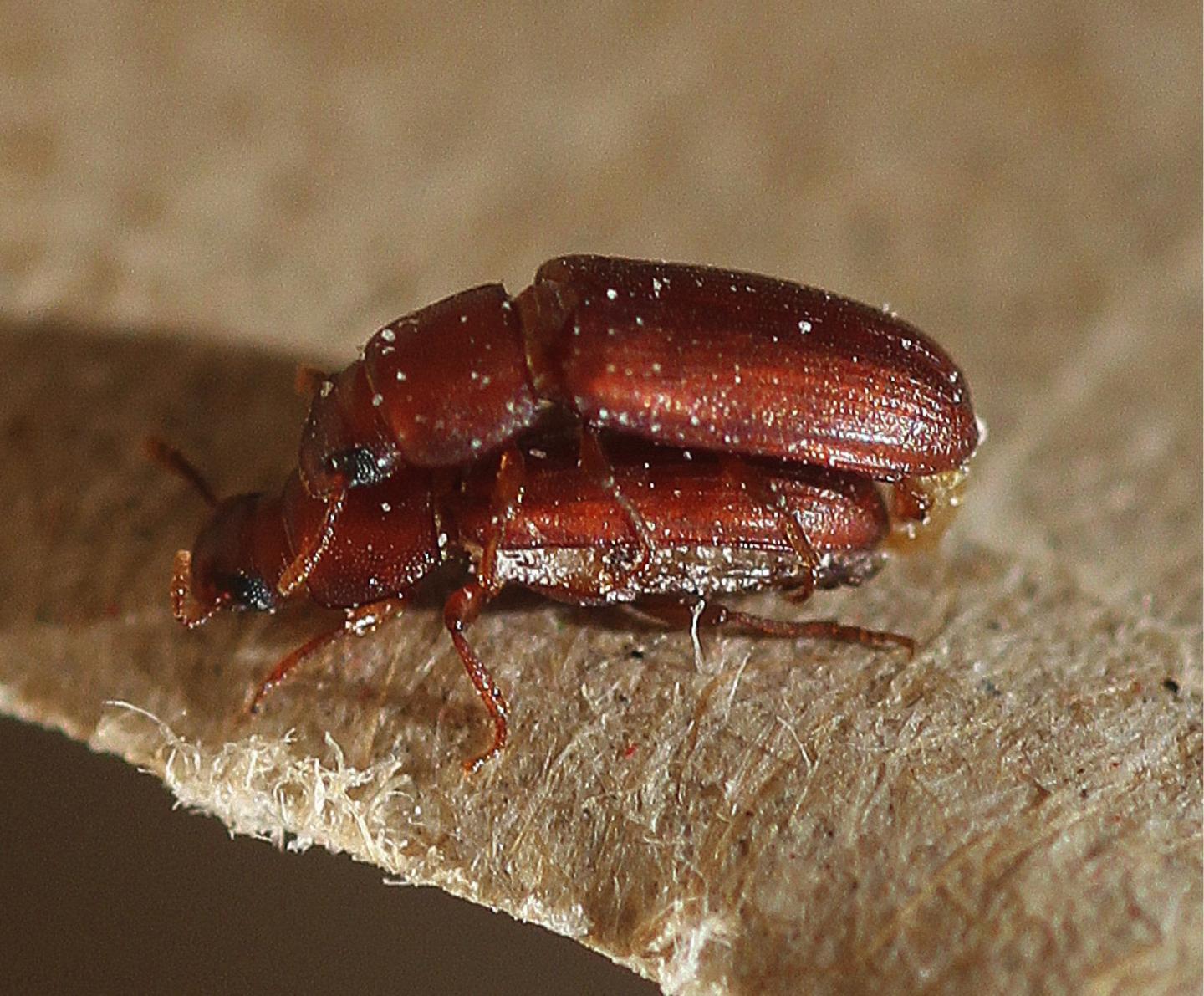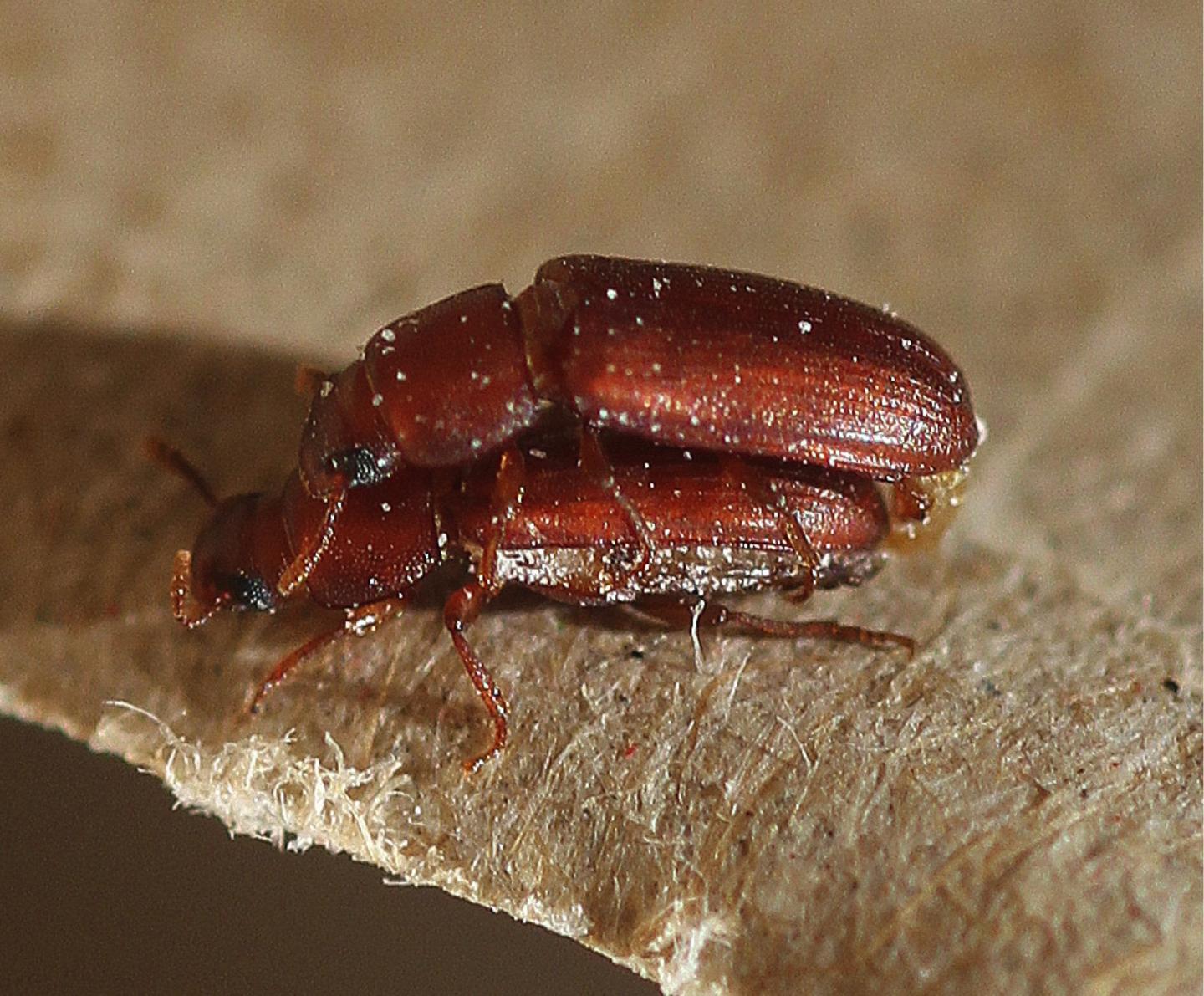
Credit: University of East Anglia
Same sex mating behaviour amongst male insects is much more likely to be due to incompetence, than sexual preference, male-male competition or evolutionary motivation – according to new research from the University of East Anglia.
This type of behaviour is well-recognised, but paradoxical in the animal world. It carries all the costs of time and energy, as well as risking disease or injury, but offers no benefits towards the main function of mating -fertilisation and the propagation of genes.
Despite this, more than 100 species of insects engage in same-sex mating behaviour, and in some species the same-sex mating is more common than heterosexual mating. Why does evolution allow this seemingly wasteful behaviour to exist?
There are a number of theories about why same-sex mating persists, including gaining advantage by practising copulation – or establishing social dominance over male rivals and reducing their fertilisation success. Other reasons might include a limited ability to recognise female mates, either because of social conditioning, or for genetic reasons.
Researchers in the School of Biological Sciences at UEA used experimental evolution to find out what might cause same sex behaviour in one particular species of insect – the red flour beetle.
In the study, published in Animal Behaviour, results showed that within populations of mostly female beetles, the males were much more likely to copulate with other males. The researchers concluded that, where there was much less pressure to find the right mate, the beetles simply made more mistakes, because they came from an evolutionary background where mistakes are not so costly for reproductive success.
By contrast, in male-biased conditions, where there is much more intense selection on males to find the right mate in order to achieve reproductive success, same-sex matings were less frequent.
In their experiment, the team bred six populations of red flour beetles and maintained them for 80 to 100 generations under male-biased or female-biased sex ratios. In the first three groups, the male beetles formed 90 per cent of the mating population, while in the second three groups, only 10 per cent of the population was male. The populations were bred independently of each other to check for consistency of any behavioural responses.
To check a male's mating motivation, a male beetle from each of the two populations was given the choice of mating with either a female or a male, and their behaviour was then monitored over 15 minutes.
Although the amount of sexual activity was similar in both groups, the researchers found that, in the population that was predominantly male, the male beetles were much more selective in their choice of mate. They were more likely to mount the female beetle first and spend a longer amount of time with her. In the population that had more females, the males were just as likely to mount a male partner as a female one and seemed to exhibit random choice over the sex of their partner.
"In the male-biased lines we found the male beetles were much more competitive at finding females and mating them efficiently," said Kris Sales, a PhD researcher at UEA who led the research. "In the female-biased lines, it's highly likely that a male mating randomly will actually mate with a female and therefore produce offspring. In these lines it looks as though males have lost their abilities to discriminate between male and female mates."
Although the research sheds light on an interesting paradox in the insect world, the work cannot reveal much about same sex behaviour in humans.
"These results cannot be generalised to explain the behaviours of animals with more complex cognitive function and social structures like birds and mammals, which are likely to have very different reasons for same sex mating," adds Sales.
The study is the first to use long term evolution to examine the behaviour of beetles, and a true simultaneous choice to offer a realistic explanation for same sex behaviour.
###
'Experimental evolution with an insect model reveals that male homosexual behaviour occurs due to inaccurate mate choice' is published in the journal Animal Behaviour.
Media Contact
Lisa Horton
[email protected]
44-016-035-93496
@uniofeastanglia
http://comm.uea.ac.uk/press
Original Source
https://www.uea.ac.uk/about/-/-bi-sexual-beetles-are-simply-inept-new-study-finds





